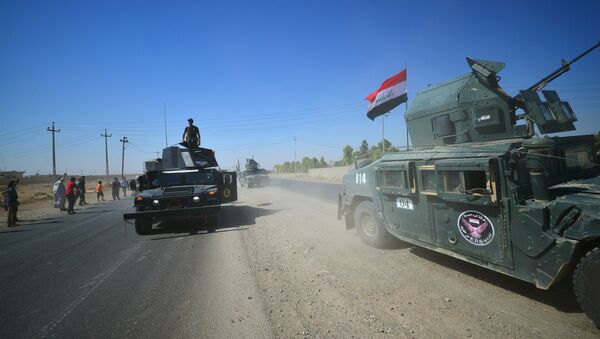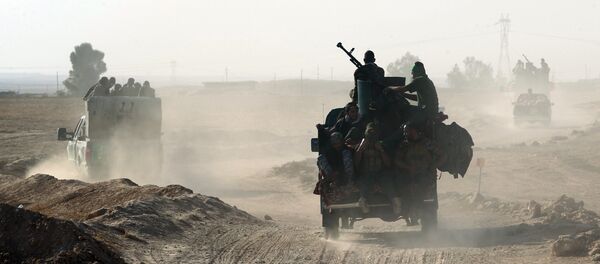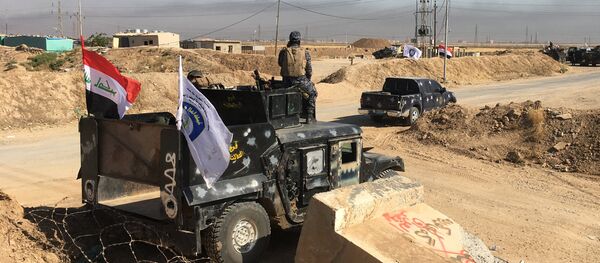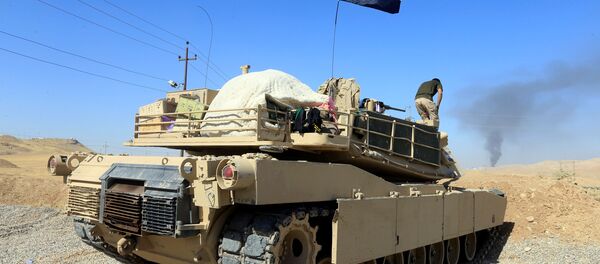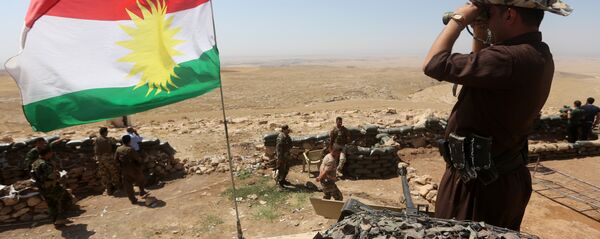WASHINGTON (Sputnik) — The United States is seeking to avert a full-scale conflict between the Iraqi national government and the Kurdish autonomous region, which held a referendum last month for independence from Baghdad.
However, the US ability to mediate between the two sides is gravely compromised because successive administrations have poured weapons into both of them, analysts advised.
US, Allies Deluged Iraq, Region with Weapons
The US policy of indiscriminately supplying weapons to any and all forces that Washington believed would oppose the Daesh terror group had made Baghdad and Erbil more ambitious and intractable author and political activist David Swanson said.
"Nothing makes the resolution of conflicts more difficult than weapons," Swanson stated. "The region has been saturated with weapons from the UN Security Council permanent members plus Germany, and first and foremost from the United States."
"The United States, far from learning any lessons from its disastrous destruction of Iraq, is continuing to destroy cities in order to save them [from Daesh] and ordering everyone around in ‘liberated’ Iraq [including ordering Iranian militias out]," he said.
Swanson cautioned that that the US government had no real commitment to achieving and maintaining Kurdish independence and therefore the Kurds would not be able to rely on the strong US military support they had anticipated.
"The rights of Kurds to independence, in Washington, DC rank far below those of Kosovans, and ways below those of Quebecois or Catalans, and probably not far from those of Crimeans. The right of any of these people not to be bombed is completely unrecognized," he said.
"So, unless the Kurds launch a plan to build several Trump Towers in Erbil, I can't see the US government becoming an ally in the cause of freedom," he stated.
However, Trump would likely to try and use any new conflict between Iraq and the Kurds to distract attention from other failed US policies and to boost popular support for his own armed forces, Swanson remarked.
"If it's any consolation, I'm sure the US president will demand many times in the coming weeks that everyone honor the US flag in the name of freedom," he said.
Washington Backed Kurds, Iraqi Prime Minister in Contradictory Policies
University of Pittsburgh Professor of International Affairs Professor Michael Brenner agreed that confused and contradictory US policies supporting both, Iraqi Prime Minister Haider Abadi and Kurdistan Regional President Masoud Barzani, had led to the looming conflict between them.
"Washington has seen an interest in backing the Barzani faction in Erbil while at the same time building up Abadi. A clash was inevitable," he said.
"The Kurds have over-reached by grabbing non-Kurdish territory under the cover of fighting the Daesh," Brenner said.
The People's Protection Units (YPG), a mainly-Kurdish secessionist militia in Syria also backed by the United States, would suffer the same precipitous reversal of fortune as the Kurds in Iraq, Brenner predicted.
"The YPG Kurds in Syria will suffer the same fate. They have lost — once again," he said.
"The United States has no choice but to placate all parties and reconcile the Kurds with their fate," he said.
On Monday, Russian Foreign Minister Sergey Lavrov said Moscow hopes the Iraqi government and Iraqi Kurdistan, which held a referendum on the region's independence in September, will manage to avoid a full-scale military conflict.

